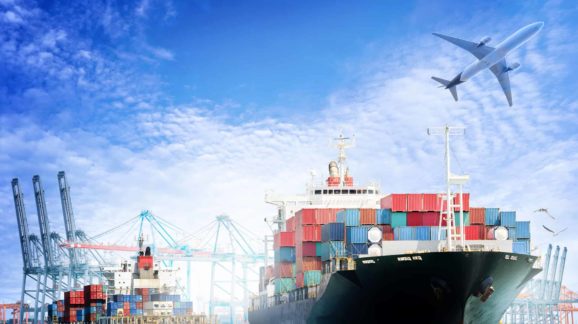Americans are open to trade

Photo Credit: Getty
Politicians win elections by telling voters what they want to hear. Right now, both parties think voters are angry about foreign trade. But when you ask voters what they think instead of telling them what to think, they turn out to be more open-minded.
This week, a new Cato Institute poll “of 2,000 Americans conducted by YouGov finds that two-thirds (66%) of Americans say global trade is good for the US economy, and 58% say it has helped raise their standard of living.” As a result, 63 percent of Americans favor increasing foreign trade, with 10 percent opposed.
This news gives both parties’ protectionists reason to pause and reflect.
Tariffs are the most visible trade barrier. They are one of Donald Trump’s signature policies. President Biden kept those tariffs in place while adding a few of his own. Three quarters of Americans correctly believe that tariffs raise consumer prices, with strong majorities still opposing them even if the tariffs are intended to benefit American manufacturing. Politicians courting those voters should keep that in mind.
Tariffs don’t cause inflation, which affects all goods. But tariffs do raise prices for the goods they affect. Voters may or may not understand the nuances, but they do get the general idea, and resent tariffs for it.
My personal favorite finding is about the trade deficit. Economists know that the balance of trade does not matter for economic health because countries do not trade with each other; individuals do. And individuals do not agree to trade with each other unless everyone involved expects to benefit. So when you add up all those millions of individual decisions, all it means is that millions of people made beneficial decisions.
Some countries import more goods than currency, while other countries import more currency than goods. Whatever the case, people made each of those decisions expecting to benefit. For example, CEI runs a chronic trade deficit with me, and we both benefit (I hope). I, in turn, run a chronic trade deficit with my local grocery store. They’ve never purchased any of my papers or articles to balance out all the food I buy from them, yet the relationship benefits us both, and is sustainable forever.
It’s nice that accountants add up all those beneficial individual decisions and give a single nationwide number for how many goods versus how much currency cross a given border. But it doesn’t mean very much.
One upside to the US running a trade deficit (receiving more goods and sending abroad more currency) is that those dollars have to come back somehow. Even allowing for foreign currency reserves and some informal dollar-based trade, most people can’t use dollars at stores in Beijing or Mumbai. So they send their dollars back to the US. Much of this is in the form of foreign investment, which creates jobs and grows businesses here in America.
Despite bipartisan caterwauling about trade deficits, most regular Americans agree with economists that trade deficits do not matter one way or the other for the economy’s overall health.
This is where methodology comes into play. The word “deficit” has negative connotations, and usually rightly so. Whoever came up with the phrase “trade deficit” must have known that, because it artificially tilts poll results in favor of protectionist trade policies.
“However,” the poll notes, “if respondents learned that the money from the trade deficit was reinvested into the US economy, then concern drops to 24% who think the trade deficit is a problem. Instead, 76% would not be concerned about the trade deficit because they thought it either was a good thing (46%) or didn’t matter (30%).”
The poll also offers insights into the recent baby formula crisis. Two thirds of Americans think it should be legal to import European baby formula. Current regulations that block nearly all imported formula left families with no alternatives when a single factory shut down when contamination was found in 2022. Freer trade makes it easier to adapt and reroute when crises happen. It also means lower overall prices, fewer price spikes, and fewer shortages in the first place, as well as more choices for consumers.
The rest of the poll is fascinating. The average American is less of a free trader than the average economist. But the gap is smaller than most people think. There are lessons here for national conservatives, progressives, economic educators, and regular people alike.
Cato polling guru Emily Ekins writes about the poll’s findings here. Cato trade scholar Scott Lincicome’s writeup is here. His t-shirt with the classic slogan “Tariffs not only impose immense economic costs but also fail to achieve their primary policy aims and foster political dysfunction along the way” is here.